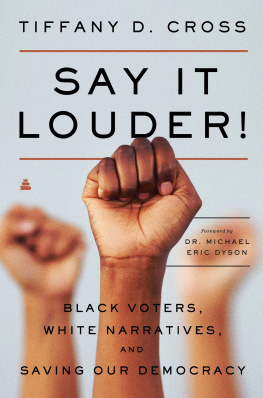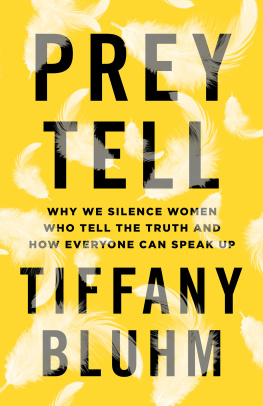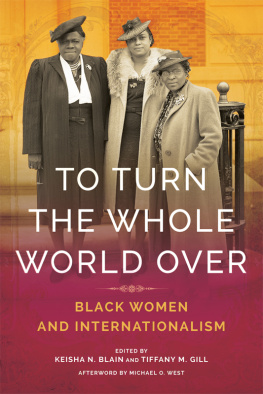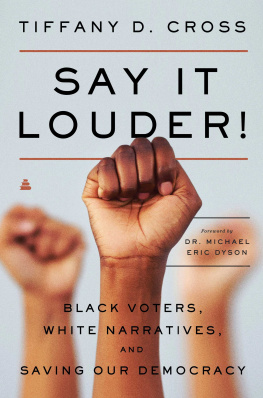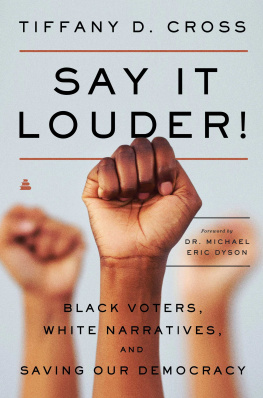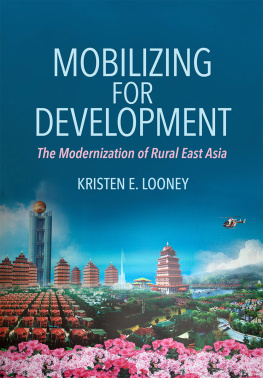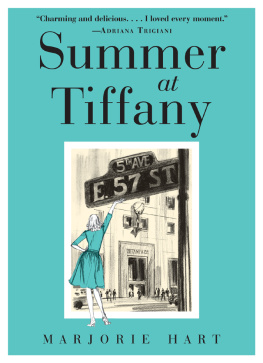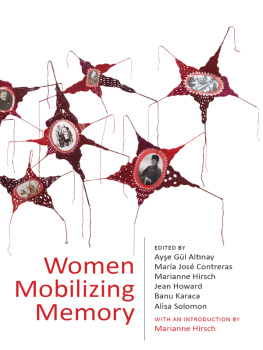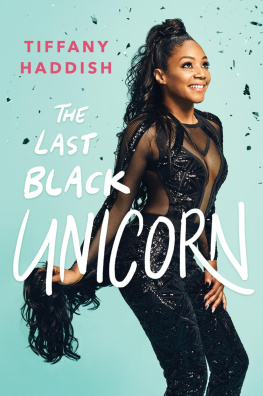2020 by the Board of Trustees
of the University of Illinois
All rights reserved
Library of Congress Cataloging-in-Publication Data
Names: Florvil, Tiffany Nicole, author.
Title: Mobilizing Black Germany: Afro-German women and the making of a transnational movement / Tiffany N. Florvil.
Description: Urbana: University of Illinois Press, [2020] | Series: Black internationalism | Includes bibliographical references and index. |
Identifiers: LCCN 2020027486 (print) | LCCN 2020027487 (ebook) | ISBN 9780252043512 (cloth) | ISBN 9780252085413 (paperback) | ISBN 9780252052392 (ebook)
Subjects: LCSH : Afrodeutsche Frauen. | Initiative Schwarze Menschen in Deutschland. | Women, BlackPolitical activityGermany. | Women political activistsGermany. | BlacksPolitical activityGermany. | FeminismGermany. | Social movementsGermany. | African diaspora. | Internationalism.
Classification: LCC DD 78. B 55 F 55 2020 (print) | lcc dd78.b55 (ebook) | DDC 305.48/896043dc23
LC record available at https://lccn.loc.gov/2020027486
LC ebook record available at https://lccn.loc.gov/2020027487
For Glenda and Isaac
with so much love and gratitudeACKNOWLEDGMENTS
Whoa, it has been a long road to get to this point. But Mobilizing Black Germany has been worth it! Through the course of writing this book, I grew and learned so much about who I am as a researcher, thinker, scholar, activist, and friend. I also learned to balance familial obligations in new ways, though I still struggle a little on that front. But writing this book was not an easy task, and I would be lying if I didnt mention that there were many times that I despaired. I suffered bouts of depression and sadness, which only exacerbated my anxieties and insecurities. But I persisted! I persevered because many of family (biological and chosen), friends, and colleagues lifted me up and made me feel like it was possible to write this book. Here I offer my gratitude to those people who shaped, assisted, and loved me and this project throughout the years.
I need to take my appreciation all the way back to my undergraduate years at Florida State University. I want to thank my undergraduate professors, especially those in the Department of Modern Languages and Linguistics and the Department of History. In Modern Languages and Linguistics, Birgit Maier-Katkins courses were my favorite because I developed my German voice and cultivated a critical literary eye. In History, Maxine Jones modeled what an African American historian could be and accomplish, and she was the only African American professor in the department. Dr. Jones pushed you to strive for excellence in her classes. Both of these professors shaped me and my academic pursuits.
Even though my graduate experience at the University of WisconsinMadison proved difficult on a number of levels, I remain grateful for the professors and friends I met there. Those professors include Rudy Koshar, James Sweet, Brenda Gayle Plummer, B. Venkat Mani, and Sabine Modersheim. While there I met many great graduate students, several of whom are now in the professoriate, and those include: Crystal Moten, Chris Fojtik, Erika Hughes, Kathy Kae, Solsi del Moral, Andreas Matias-Oritz, Gabby Kuenzli, and Stacy Milacek. At the University of South Carolina, there were many influences. First and foremost, I want to thank my amazing advisor, Ann Johnson. It was her faith in me as a scholar that truly enabled me to succeed. When others doubted my abilities in the department, she had no doubt whatsoever. In fact, under her supervision, I excelled, finishing my dissertation and landing a tenure-track job. Sadly, Ann died in 2016 and was unable to see the completion of this project. But I believe she would have been proud of what I accomplished in these pages. I also want to thank other professors at the other USC: Carol Harrison, Yvonne Ivory, Matt Childs, Dan Littlefield, Emil Kerenji, Anne Gulick, Kathryn Edwards, and Bobby Donaldson. Carol has continued to support me since I graduated in 2013. I had a nice cohort at USC, and those individuals include Candace Cunningham, Gabby Dudley, Christiane Steckenbiller, Sarah Scripps, Tara Strauch, Michael Woods, Laura Foxworth, Kathryn Silva, and Ramon Jackson. After USC I spent a short time in Bloomington, Indiana, and I want to thank the people I met inside and outside the History Department: Ellen Wu, Micol Seigel, Wendy Gamber, Jason McGraw, Christina Snyder, Felicity Turner, Claudia Drieling, and Susan Suz Eckelmann Berghel. In particular, Susan and I developed a great friendship, and I am grateful for her presence in my life.
Throughout the years, many people and institutions have supported me and made my research possible. I am grateful for these colleagues, professionals, friends, and otherwise. In Germany, there were many gracious people who spent time with me, opened their homes to me, and made my time enjoyable: Ria Cheatom, Marion Kraft, Katharina Oguntoye, Cassandra Ellerbe, Paulette Reed Anderson, Ricky Reiser, Ika Hgel-Marshall, Dagmar Schultz, Silke Hackenesch, Inez Templeton, Andreas Kurz, Rebecca Brckmann, Katrin Summa, and Helga and Andreas Mandt. I want to say a special thank you to one of my best friends, Inika Inie Otto. Our more than twenty-year-old friendship has been a balm in my life, and I am glad that we bonded in our English Leistungskurs so many years ago. I also want to thank Alicia Villarosa at Villarosa Press as well as the archivists at Spinnboden Lesbenarchiv und Bibliothek in Berlin; the Freie Universitt Berlins University Archive (especially Frank Lehmann and Birgit Rehse), the Frauenforschungs-,-bildungs- und -informationszentrum in Berlin, and the Zentrale Bibliothek Frauenforschung, Gender & Queer Studies in Hamburg. In the United States, I want to thank the archivists at Spelman Archives in Atlanta (especially the late Taronda Spencer, Holly Smith, and Kassandra Ware). I express my gratitude to the talented Diana Ejaita for granting me permission to use her beautiful artwork for the cover of my book.
In addition, I am grateful to have received the following fellowships: the American Council on Germanys Dr. Richard M. Hunt Fellowship for the Study of German Politics, Society, and Culture; the Feminist Research Institutes Faculty Research Grant at the University of New Mexico; the German Academic Exchange Service (DAAD); the Walker Institute of International and Areas Studies Ceny Walker Graduate Fellowship at the University of South Carolina; the Becht Family Endowment Fund Dissertation Preparation Fellowship at the University of South Carolina; the College of Arts and Sciences Deans Dissertation Fellowship at South Carolina; and the Rhude M. Patterson Trustee Graduate Fellowship at the University of South Carolina. This support made it possible for me to conduct research trips in Europe and the United States.





